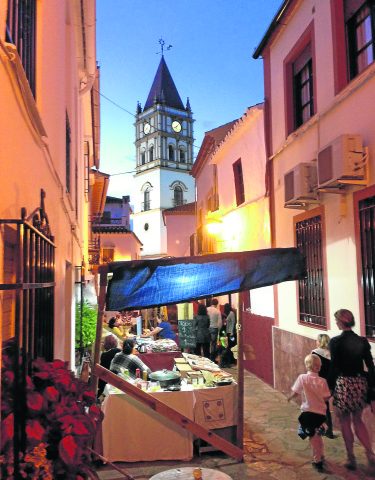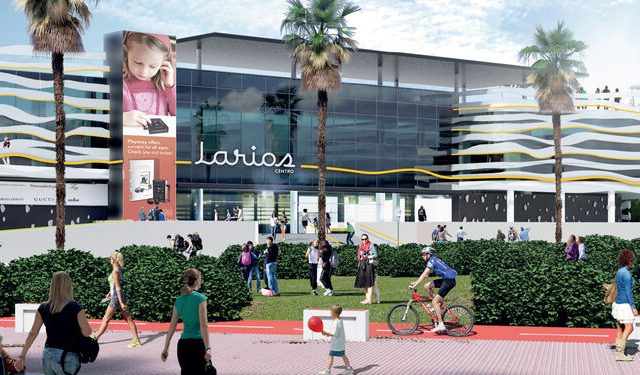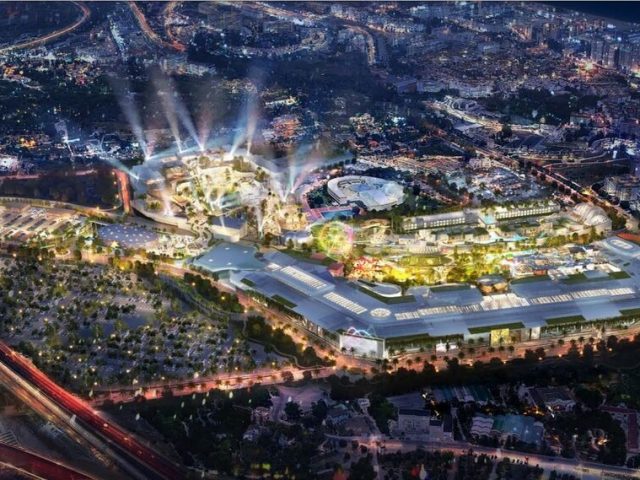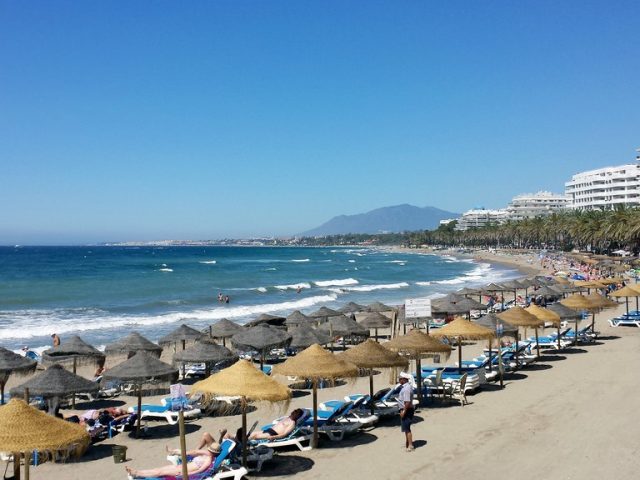- Have any questions?
- +34 951 273 575
- info@allaboutandalucia.com
Home-grown Arriate

Ronda: A step back in time
August 10, 2016
Where to stay in Ronda and the surrounding area
August 10, 2016THE People’s Republic of Arriate is an ‘island’ in the Ronda Mountains.
Not an island in the classical sense of the word, but an eight-and-a-half square kilometres island entirely surrounded by Ronda, from whom it wrestled control some 400 years ago.
Fiercely independent of its pico, or snobbish, neighbours, the district – the smallest in Malaga province – has been staunchly left wing since the death of dictator Franco in 1975.
Ruled by either the PSOE or the IU (formerly the Communist party) for nearly four decades, fortunately this is what one might call ‘Communist Light’, and has more to do with a shared sense of fun than of the teachings of Chairman Mao.
This might perhaps explain, why – despite its apparent hard left leanings – the town has some of the best known Easter parades in the whole of Andalucia.
Highly competitive and reaching fever pitch around Good Friday, practically every family has a member in one parade or another.
Indeed, such is the clamour to be involved, the brotherhoods even hold lotteries for the right to carry the floats (or tronos) of Jesus and Mary.
“It has always seemed a real contradiction to me,” says Jose Antonio Coca, a fitness instructor, who grew up in the town. “The processions are taken very seriously and they are very moving, but it is a simple fact that most of those involved hardly ever go to church and so it is really just down to the tradition.”
Either way, Arriate has a distinctly warm and friendly feel to it and, on the whole, its people look after each other in a sort of anarchic, commune-type way.
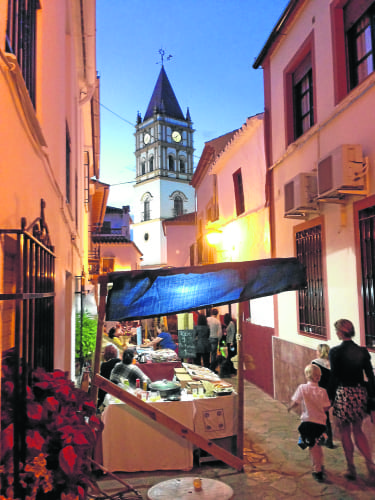 It is no surprise to learn then, that in the run up to the civil war in 1936, the town’s defence committee was run by anarchists, who with the CNT had the strongest trade union in the area.
It is no surprise to learn then, that in the run up to the civil war in 1936, the town’s defence committee was run by anarchists, who with the CNT had the strongest trade union in the area.
Arriate also has the curious distinction of being, aside from Ronda, the only town of the Serrania de Ronda to have grown substantially over the last decade.
While most of the dozens of towns and villages have generally shrunk in size, hemorrhaging people to the larger cities, Arriate has actually increased to its current figure of over 4,000.
Much to do with its near proximity to Ronda – coupled with more reasonable prices – the town has grown well. “It is no surprise with the town being easily one of the most friendly in Malaga province,” explains Carmeli Gamarro, whose family firm Melgar have been curing and salting meat for many centuries.
“The Arriatenos are worldly people, who have travelled all around the world to work,” she continues. “It makes them open and friendly.”
This was certainly the case as many of them had to emigrate to Switzerland, France and Germany to work in the tough impoverished years of the 1960s and 1970s.
These days, while a new tranche of youngsters is being forced to go abroad to hunt again for work, many of the original emigrants are back and you can’t help but notice the number of happy-looking pensioners hanging around watching the day go by.
One place, Bar La Albarra is so famous for these old boys that a Dutch photographer put together an exhibition based entirely around its clientele. Sitting down to play cards over an 80-centime brandy, the old boys certainly look contented with the world.
Another perfect snapshot of the town is at Pedro Montesino’s greengrocer, which is the heart of local life and where a queue frequently snakes around the shop.
It is here that his faithful customers patiently wait their turn, catching up on gossip and barracking Pedro, who is never short of a bit of banter himself.
A hard-working man, he is up with the lark to source his great selection of produce and spends much of his afternoon delivering it around the nearby area.
“And as long as the locals keep supporting our local shops and demanding good quality goods then I will continue finding them,” he says.
Luckily the town has managed to keep its local shops. There are only two small supermarkets and attempts to open a Dia in the town were recently shelved.
Almost every house on the main street has a shop on its ground floor. Many of them have no signs, but just a main door. Some are like caves, stretching back almost 50 metres, and shopping around, you can find some of the best quality meat and vegetables in Malaga province.
Tucked away in the town’s fabric are a number of other interesting sites. Best are some of the ‘secret’ meat factories that are dotted around. One of these in the charming pedestrianised Calle Callejuela has been open as a shop since 1900, a fact proven by the number carved into its pretty wrought iron doorway. The factory is at the back for anyone interested in visiting.
Greengrocer Pedro is typical of the Arriate stock. A staunch supporter of old fashioned village life, he spends most weekends enjoying the local countryside.
A keen hiker, he is forever in training for this or that, the highlight of his year being the annual 101km walk organised by nearby Ronda’s famous Foreign Legion.
“It is the best thing about living in a country village like this,” he explains.
Indeed, the countryside surrounding Arriate – meaning ‘vegetable garden’ from the Arabic word Arriadh – is full of lovely walks.
The best goes up what is known as the valley of the Molino Canto to the source of Arriate’s river Guadalcobacin.
A shady stroll through a pristine valley, the path continues up into the Sierra de las Nieves.
And yet there is more. For Arriate can also call itself something of a musical town, one of the best in Andalucia, with two town bands and plenty of local groups.
It is a tradition that can be traced back even before the origins of the town, when a mythical group of country musicians roamed the area playing music in the dead of night.
Known as La Aurora de Arriate, the group still keeps up the tradition playing every Sunday morning between the hours of 4am and 6am.
With origins from Arabic times in the 13th century, the coplas, or local songs, have been passed down from generation to generation and became famous when in 1973 the
British National Geographic Society recorded them for an album on Spanish cultural music.
A capacity for music is all too obvious with a visit to the incredible Los Caireles bar on the high street.
There are few surprises in the Serrania as pleasant as walking through the anonymous frosted glass doors on a concert night in winter, when it will be full of hundreds of music fans of all ages, colours and styles.
Much to do with the brothers Roberto and Monolo Rivera, the surprise is more the better, if you can persuade them to take you out back. If so, you will realise that the bar you are standing in is just one small corner of what was once – since the 1940s – Arriate’s Cine Ideal. And what a gem it is.
Still standing today, with its main screen and stage – not to mention 350 original wood and leather seats bought from Cine Paris in Malaga in the 1950s – best of all are the stunning brightly-coloured hydraulic tiles that line the entrance.
“Our father was a real film fanatic,” says Monolo. “This was one of the most popular cinemas in the Serrania.
“People came for miles around despite the movies being heavily censored by the local priest and mayor, who would watch the film first demanding cuts all over the place.”
Running until 1988, when due to dwindling audiences part of it had to be converted into a flamenco venue, the brothers have kept it intact despite numerous offers from developers to turn it into flats.
“This is our legacy and part of our town’s key history,” says Roberto. “I grew up watching Cinema Paradiso and always dreamt of one day opening the cinema up again. One day we hope to be able to find the funding to do that.”
It is one of those projects, which hopefully a planned new tourist association will help to get off the ground.
With a new tranche of talented, hard-working expats moving in, opening hotels and restaurants (one, El Muelle, run by a Dutchman, number one on TripAdvisor for all of Andalucia, no less), it could well be Arriate’s decade.
The emphasis is on sustainability, organic agriculture and home-grown produce.
Its recently set up Fiesta en el Aire epitomizes this mix, a three day festival of the best of Andalucia’s natural produce and music.
Thinking small, planning local, growing your own…It could be a microcosm of what Andalucia should really be aiming for in years to come.

